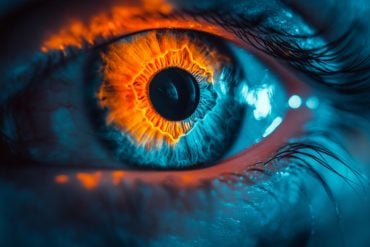Summary: University of Michigan researchers report neuroimaging are better predictors of individual choices than traditional surveys.
Source: University of Michigan.
Surveys and self-reports are a time-honored way of trying to predict consumer behavior, but they have limitations. People often give socially desirable answers or they simply don’t know or remember things clearly.
A new study by Carolyn Yoon, University of Michigan professor of marketing, and colleagues Alexander Genevsky of Rotterdam School of Management and Brian Knutson of Stanford University suggests neural activity can not only be a better predictor of individual choices, but also can help forecast aggregate outcomes in the marketplace.
The researchers literally got inside people’s heads using functional magnetic resonance imaging (fMRI) to scan test participants during a decision-making task. What Yoon and her co-authors found could eventually be used by marketers to better predict a product’s success.
“Surveys and behavioral reporting can work for a lot of things, but they’re not great for everything,” Yoon said. “So much consumer behavior happens at the implicit level, and traditional tools often fall short of capturing what’s unobservable.”
Yoon and colleagues measured people’s neural activity with fMRI scans while they performed a task selecting which documentary films to support on the popular crowdfunding site Kickstarter. They then asked them questions on what they thought about particular pitches.
The researchers subsequently tracked which projects achieved funding on Kickstarter. In the first study, 18 of the 36 selected projects were funded, and in the second 14 were eventually funded.
When they evaluated both the fMRI scans and responses to the questionnaires, they found that greater activity in a specific part of the brain (nucleus accumbens) during the decision task predicted the success of a project being funded more reliably than the questionnaires.
“Relatively early response in the brain carries a great deal of weight in predicting what people will choose for themselves as well as what others in the marketplace will choose,” Yoon said. “We did a second experiment, to check that the findings replicate and they do.”

The study shows that it’s possible to get a look into the human brain to see what drives people’s choices. That could eventually help marketers understand the biases inherent in surveys and self-reports and figure out how the neural measures and more traditional measures can be used in a complementary fashion.
While fMRI scans like the ones performed in the study aren’t necessarily expensive, the more researchers find out about neural mechanisms the more likely they can develop better “paper and pencil” measures.
“It seems we can get a fine-grained look at what, exactly, in the brain may be driving people’s choices at the population level,” Yoon said. “Eventually this could inform marketing research about consumer decisions that rely on processes that can not be readily captured currently.”
Source: Greta Guest – University of Michigan
Publisher: Content organized by NeuroscienceNews.com.
Image Source: NeuroscienceNews.com image is adapted from the University of Michigan news release.
Original Research: Full open access research for “When Brain Beats Behavior: Neuroforecasting Crowdfunding Outcomes” by Alexander Genevsky, Carolyn Yoon and Brian Knutson in American Journal of Psychiatry. Published online September 6 2017 doi:10.1523/JNEUROSCI.1633-16.2017
[cbtabs][cbtab title=”MLA”]University of Michigan “Brain Activity Predicts Crowdfunding Outcomes Better Than Self Reports.” NeuroscienceNews. NeuroscienceNews, 21 October 2017.
<https://neurosciencenews.com/crowdfunding-brain-activity-7785/>.[/cbtab][cbtab title=”APA”]University of Michigan (2017, October 21). Brain Activity Predicts Crowdfunding Outcomes Better Than Self Reports. NeuroscienceNews. Retrieved October 21, 2017 from https://neurosciencenews.com/crowdfunding-brain-activity-7785/[/cbtab][cbtab title=”Chicago”]University of Michigan “Brain Activity Predicts Crowdfunding Outcomes Better Than Self Reports.” https://neurosciencenews.com/crowdfunding-brain-activity-7785/ (accessed October 21, 2017).[/cbtab][/cbtabs]
Abstract
When Brain Beats Behavior: Neuroforecasting Crowdfunding Outcomes
Although traditional economic and psychological theories imply that individual choice best scales to aggregate choice, primary components of choice reflected in neural activity may support even more generalizable forecasts. Crowdfunding represents a significant and growing platform for funding new and unique projects, causes, and products. To test whether neural activity could forecast market-level crowdfunding outcomes weeks later, 30 human subjects (14 female) decided whether to fund proposed projects described on an Internet crowdfunding website while undergoing scanning with functional magnetic resonance imaging. Although activity in both the nucleus accumbens (NAcc) and medial prefrontal cortex predicted individual choices to fund on a trial-to-trial basis in the neuroimaging sample, only NAcc activity generalized to forecast market funding outcomes weeks later on the Internet. Behavioral measures from the neuroimaging sample, however, did not forecast market funding outcomes. This pattern of associations was replicated in a second study. These findings demonstrate that a subset of the neural predictors of individual choice can generalize to forecast market-level crowdfunding outcomes—even better than choice itself.
SIGNIFICANCE STATEMENT Forecasting aggregate behavior with individual neural data has proven elusive; even when successful, neural forecasts have not historically supplanted behavioral forecasts. In the current research, we find that neural responses can forecast market-level choice and outperform behavioral measures in a novel Internet crowdfunding context. Targeted as well as model-free analyses convergently indicated that nucleus accumbens activity can support aggregate forecasts. Beyond providing initial evidence for neuropsychological processes implicated in crowdfunding choices, these findings highlight the ability of neural features to forecast aggregate choice, which could inform applications relevant to business and policy.
“When Brain Beats Behavior: Neuroforecasting Crowdfunding Outcomes” by Alexander Genevsky, Carolyn Yoon and Brian Knutson in American Journal of Psychiatry. Published online September 6 2017 doi:10.1523/JNEUROSCI.1633-16.2017







